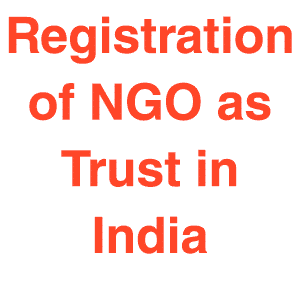Definitions A” Trust” is an obligation annexed to the ownership of property, & arising out of a confidence reposed in and accepted by the owner, or declared and accepted by him, for the benefit of another, or of another and the owner.
- Author of Trust – The person who reposes or declares the confidence is called “the author of the trust”.
- Trustee– The person who accepts the confidence is called the “trustee”.
- Beneficiaries – The person for whose benefit the confidence is accepted is called the “Beneficiaries”.
- Trust property – The subject matter of trust is called “Trust Property” or “Trust Money”.
- Instrument of Trust – The instrument, if any, by which the trust is declared is called the “Instrument of Trust”.
REQUISITES FOR CREATION OF A TRUST
- There is a founder/settler/author of trust;
- There should be a person(s) called trustee/trustees;
- There is a property of the trust which the settlor gives;
- There is a person capable to enforce that obligation called cestuique trust;
- There are beneficiaries who will enjoy benefits out of that property.,
- An intention of the author or founder to create a trust;
- The purpose of the trust;
- Transfer of the property to the trustees.
CONDITIONS FOR CREATION OF A TRUST
- The settler has to give up ownership and all beneficial interests in the property,
- The property should be clearly described,
- The objects or purposes for the creation of trust should be clearly indicated,
- A formal deed or any other writing not required intention to create a trust may be shown through words. However, it is advisable to have a written trust deed for all practical purposes,
- The settler must be a person competent to contract,
- The trust property must be property transferable to the beneficiary. It must not be a merely beneficial interest.
WHO MAY BE TRUSTEE?
Every person capable of holding property may be a trustee: but, where the trust involves the exercise of discretion, he cannot execute it unless he is competent to contract. No one is bound to accept the trust. Any number of persons may be appointed as trustees. However, no trust is defeated for want of a trustee. Where there is no trustee in existence, an official trustee may be appointed by the court and the trust can be administered.

